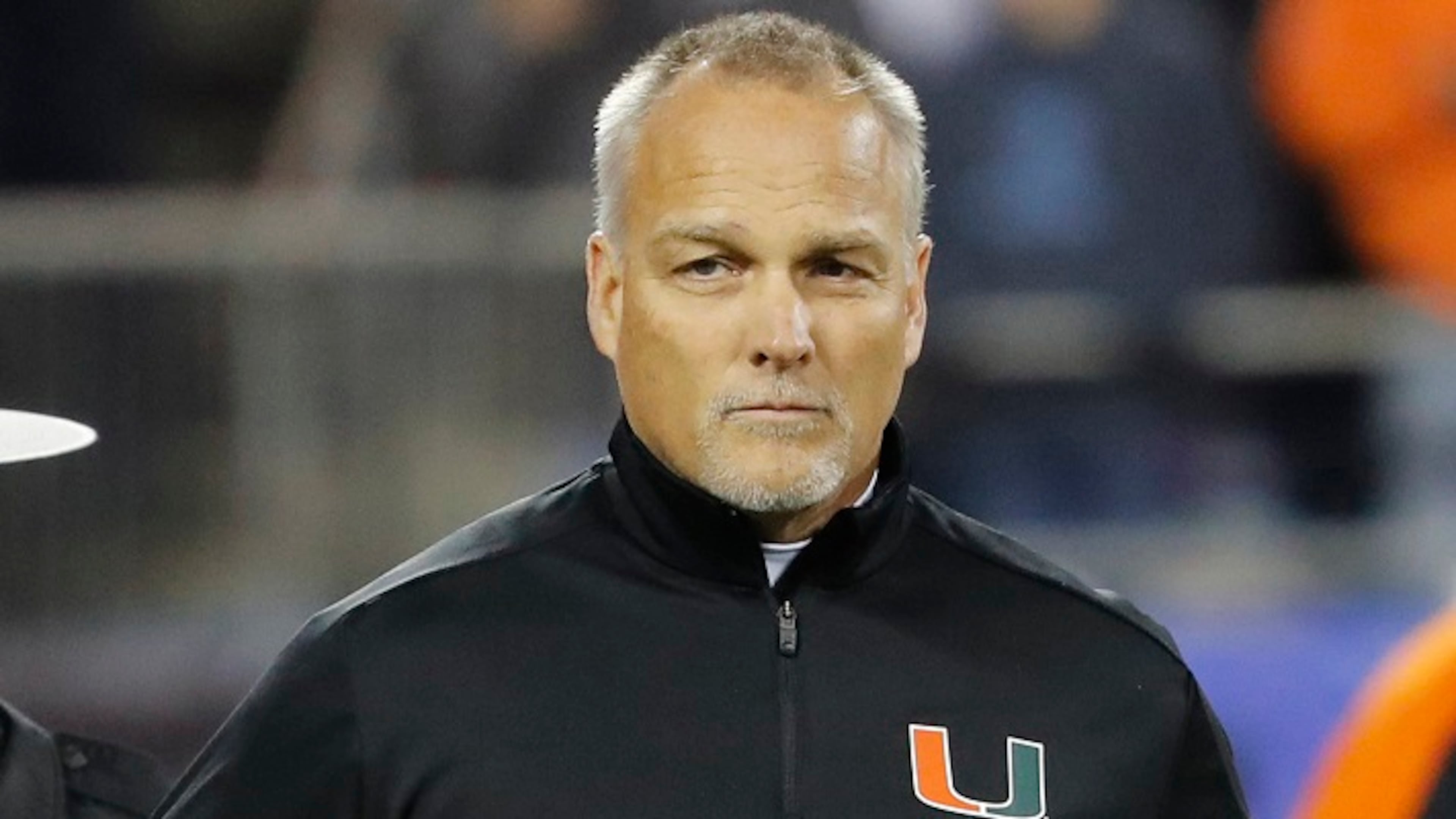How Mark Richt went from fired bartender to Miami football coach

Before he was one of the most recognizable names in college football and before he led the Miami Hurricanes to their first Coastal Division crown and first 10-win season in more than a decade, Mark Richt was a failed, fired bartender. And a struggling valet.
The classes Richt took to learn how to sell life insurance? Those didn’t exactly go as planned. Selling gym memberships wasn’t his forte, either.
But Richt kept pushing, pursuing his football dreams. And during an appearance Wednesday morning at the YMCA of South Palm Beach County’s Inspiration Breakfast, the coach detailed how faith and perseverance have brought him to this point in his life, a point where he’s tasked with not only leading a major college football program, but trying to be the best husband and father he can be.
“I think sometimes, so many football players, they were like me. They put their identities in what they do. Sometimes, our identities are in what we do,” Richt said. “We are not what we do. I have to be a believer in God that happens to be a football coach. When football went into the tank back when I was in college, I went in the tank. If my only identity was being a football coach, when that goes in the tank, then I’m going to be gone. That’s when people have depression and despair and suicide and all those things. …
“What I’m telling everybody is this: Don’t become what you do. Make sure you have your faith in God and you put your trust and faith in him. … Get your hearts right with the Lord and do the very best you can and trust him with the results, and you’ll have that peace that the Bible talks about. I can promise you that.”
Since taking over at Miami in 2015, Richt has never shied away from discussing his faith or how his life was changed when, while he was a graduate assistant at Florida State in 1986, Seminoles lineman Pablo Lopez was shot and killed.
The incident — which Richt detailed again during Wednesday’s appearance in Boca Raton — led the coach to become a Christian. That decision, Richt has said, shapes every aspect of his life, including how he runs his football team, where players are presented with engraved Bibles when they arrive at Miami and where daily staff meetings often include devotional time and messages of inspiration.
“When I started (coaching), it was (about) competition and strategy. I didn’t think about being involved in a guy’s life. I was only 24 years old,” Richt said. “Then, after doing it a while, you’re like, ‘These guys need this. They need our help.’ If all we do is teach them football and they leave and when it’s all over, they’re lost, we blew it. … We try to holistically bless them as they go through our program.”


